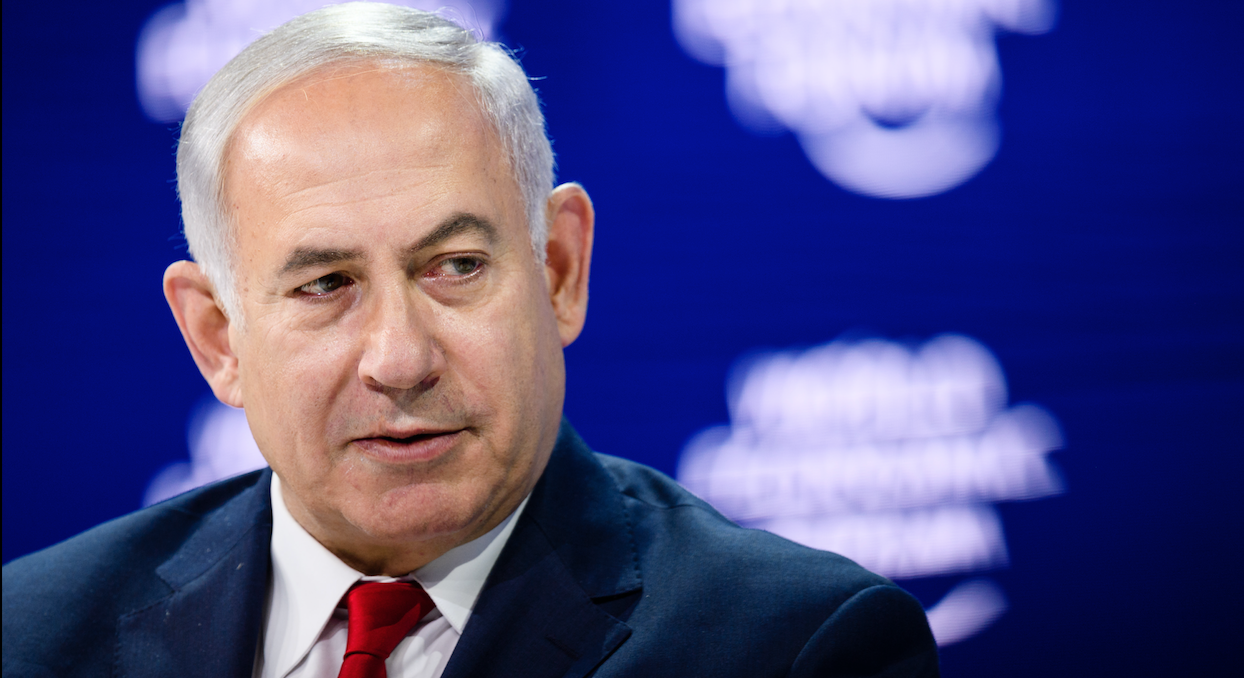No Political Horizon in Sight for Israel’s Elections

Had the leading “centre-left” parties been willing to see Palestinian citizens of Israel as equal, they could challenge the right-wing hegemony in Israel’s national legislature. But that would be asking the impossible.
In September this year snap elections are due to be held in Israel, just five months after the last round did not yield the formation of a new government. Early next October, just as the Israeli political system will find itself deep in coalition negotiations following the elections, Prime Minister Benjamin (Bibi) Netanyahu will face a pre-indictment hearing with the attorney general.
Netanyahu faces three indictments on different counts of fraud, breaches of trust, and bribery. In the Israeli parliamentary multiparty system, it is the president who decides, based on the elections results and consultations with the parties, on whom to confer the mandate to form government. Even if President Reuven Rivlin confers this mandate on Netanyahu yet again in September, it is unlikely that there will be enough time between the elections and the hearing for Netanyahu to manipulate the law to avoid the indictments being filed, except if the Supreme Court delays the impending hearing. Netanyahu’s fifth premiership might never materialise.
Significant shifts in Israeli politics took place in the lead up to, and as a result of, the last elections. With no clear political agenda but to end Netanyahu’s reign, a new “Blue and White” alliance was formed around a number of former IDF — Israel Defense Forces — generals and Yair Lapid’s secularist party, Yesh Atid.
Leading the elections results, Netanyahu’s party Likud and Blue and White each received 35 seats out of 120 in the new Knesset. Netanyahu was just one seat away from coronation, but his attempts to form government were outdone by Avigdor Lieberman, leader of the right-wing Yisrael Beitenu party, with its five seats. Lieberman justified his refusal to join the coalition-to-be on the grounds that Netanyahu’s reluctance to force conscription on the ultra-orthodox Jewish religious citizens.
Netanyahu failed to secure at least 61 Knesset members supporting him and forced the snap elections to thwart a scenario in which the president granted Blue and White leader Benny Gantz the mandate to form government.
This was the first time that the Knesset voted to dissolve itself before a government had been formed. It was also the first time that Labor came so close to disappearing. Despite being part of the Labor movement that consolidated the pre-state Jewish community and the settler-colonisation of Palestine, and being a leading party since the establishment of the state of Israel in 1948, the Labor party received just six seats in the last elections. Politically moribund, Labor can only blame itself given it lacks not only robust and visionary leaders but also no political identity whatsoever.
In a bid to regain seats, the snap elections became also an opportunity for the Palestinian parties, who were reduced in April to ten seats and have just reassembled the Joint List, which in 2015 emerged as the third political party with 13 seats.
The “anyone but Bibi” discourse dominated the last election campaign in April, and it is already circumscribing the political scene ahead of the next round in September. Those aspiring to prevent another Bibi premiership underscore Netanyahu’s populism and personality cult, his disdain for the rule of law, and his efforts to diminish the Supreme Court’s power to oversee the executive branch. Old-new figures are joining the campaign: 77 year-old and former Labor leader and Prime Minister Ehud Barak has made a comeback to politics, and in his own words: “As your former commander, I’m telling you: Bibi, you can no longer remain at the helm of the government. Your time as a political leader is over.” In the meantime, Nitzan Horowitz, Israel’s first gay party leader was elected to lead Meretz, the small liberal party, and he already announced his willingness to form broad alliances toward the imminent elections.
We should not expect dramatic changes to the political blocks in the September snap elections. A major swing of voters from Likud or the right-block more generally to Blue and White or Barak’s new political party is improbable.
As a result of Netanyahu’s pre-indictment hearing and his failure to form government in April-May, Blue and White might take just few thousand voters from Likud, and slightly strengthen what is misguidedly called the centre-left block, now formed by Blue and White, Labor, Meretz and Barak. Yet it is wrong to call this block “centre-left” simply because in every political aspect — society, economics and the relations with the Palestinians — they are not significantly different from the rest of the Jewish political parties. About 90 percent of the Knesset is overwhelmingly right and nationalist, de facto representing the large majority of Jewish voters. In both the Gantz block and Netanyahu’s, swings of votes are likely to happen within the blocks, not across them. No such shift would help Gantz to form government. Moreover, because of Lapid’s and Meretz’s anti-religious militancy, a bond between the ultra-orthodox religious parties and the Gantz block is not bound to happen.
The reason for this structural impossibility lies in what the so-called “centre-left camp” excludes: the Palestinian citizenry and their political parties, and any serious plan to end the occupation of the Palestinians in the West-Bank and Gaza.
Had the leading parties seen the Palestinian citizens of Israel as legitimate members of society, they might have been able to create a larger political block that could challenge the right-wing hegemony in the Knesset. But that would be asking the impossible. The anti-equality drive towards the Palestinian citizens of Israel is not only characteristic of the right, but encompasses the whole spectrum of Jewish parties. Meretz is not exactly an exception: the small liberal party has never stepped away from the commitment to Zionist values and institutions which privilege Jews.
In the campaign leading up to the last elections in April, Netanyahu’s main contenders in Blue and White did not hesitate to make it clear that they will not, under any circumstances, negotiate with the Palestinian parties to form government. At the same time Gantz himself bragged about his role in “sending parts of Gaza back to the stone age” as former IDF chief of the general staff. Just recently, Lapid clarified, “I’ve been totally against a state of all its citizens all my life. Israel is a Jewish and democratic state, and that’s how it will remain…”
A “state of all its citizens” is the Israeli terminology for what in other parts of the world we would simply call equality. In Israel the term is used as an anti-thesis of what actually characterises the state, one based on Jewish exclusivity.
The attitude towards the Palestinian citizens and their political representation is indicative of a deeper political culture with regards to the Palestinian question. The Jewish-Israeli public is totally oblivious to the fact that they exclude from elections about 35 percent of the population under Israeli rule: more than five million Palestinians in the West Bank living under military occupation and those sieged in Gaza, who have no political rights.
Netanyahu might fall, which may restore some integrity to the Israeli political system. However it would not transform what actually defines Israeli politics and society: the oppressive rule of the Palestinian people. Israel-Palestine is possibly the most incandescent settler colonial situation, with the whole Israeli social and political systems mobilised to serve these relations of domination. If we can learn from other settler colonies, it stands to reason that only a civil decolonisatory vision has the political force to offer hope.
Yet none of the leading political parties is offering such an horizon. The opposite is the true: in Israeli Zionist politics, the way up cuts through the vilification of the Palestinians, and the promise is to a harsh approach towards them.
Dr Marcelo Svirsky is a senior lecturer at the School for Humanities and Social Inquiry, University of Wollongong. He researches settler-colonial societies particularly Israel-Palestine, and focuses on questions of social transformation and decolonisation.
This article is published under a Creative Commons Licence and may be republished with attribution.





